The Bonn Climate Change Conference concluded today after two weeks of intensive work across a range of issues where progress is needed on the path to the UN Climate Change Conference (COP29) this November in Baku, Azerbaijan.
“We’ve taken modest steps forward here in Bonn,” said UN Climate Change Executive Secretary Simon Stiell in his closing speech. “[But] too many items are still on the table... We’ve left ourselves with a very steep mountain to climb to achieve ambitious outcomes in Baku.”
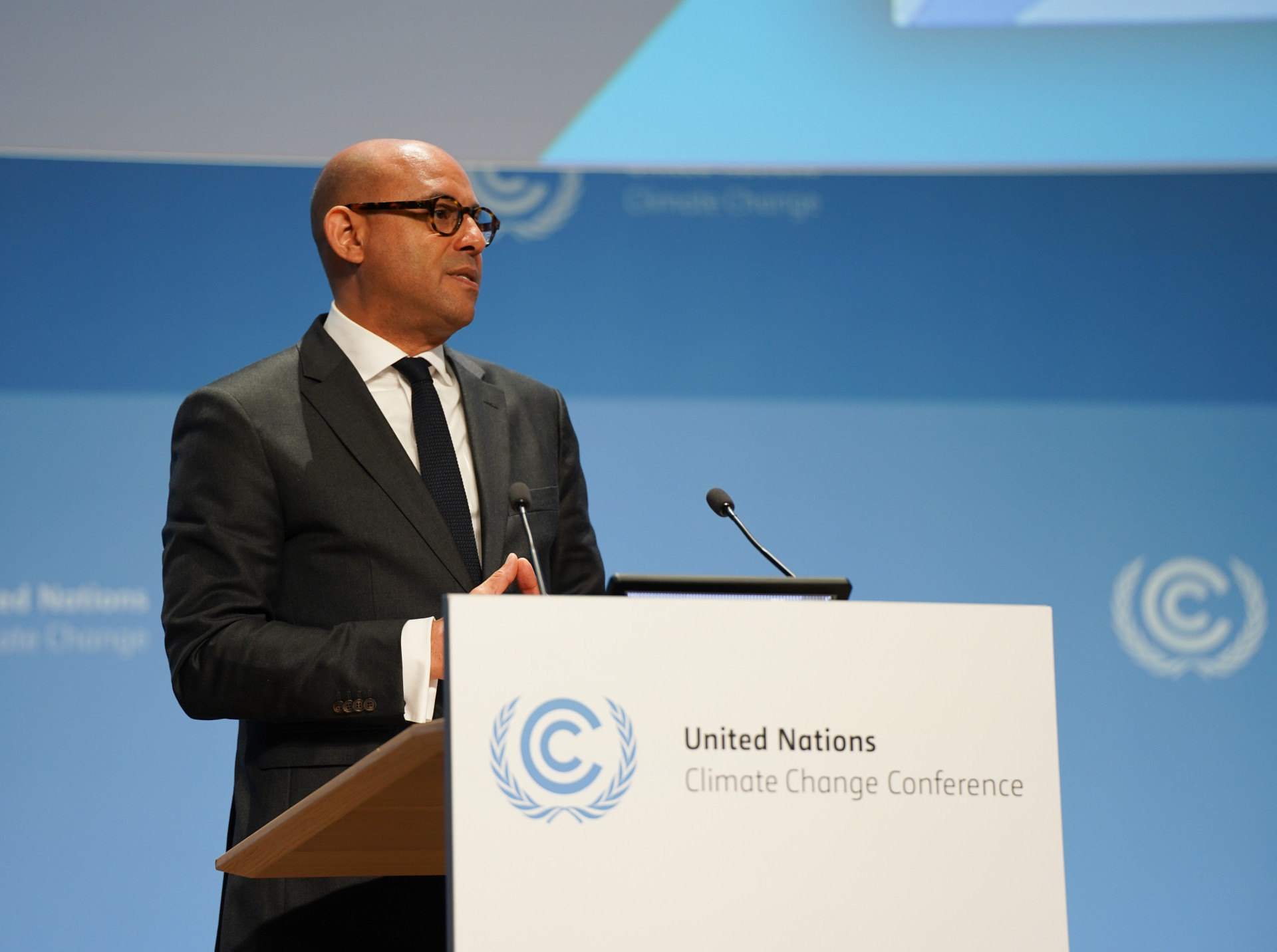
At the closing of the June Climate Meetings, UN Climate Change Executive Secretary Simon Stiell called for countries to step up efforts ahead of COP 29.
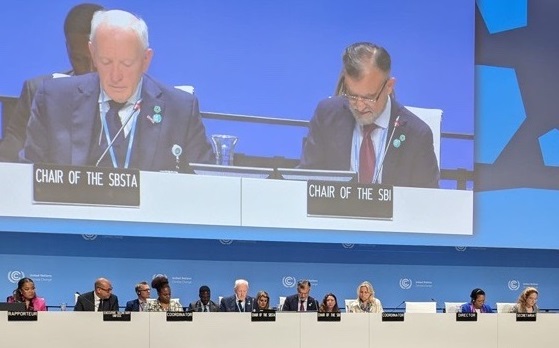
Watch UN Climate Change Executive Secretary Simon Stiell, the SB 60 co-chairs, and other delegates discuss the conference outcomes and next steps.
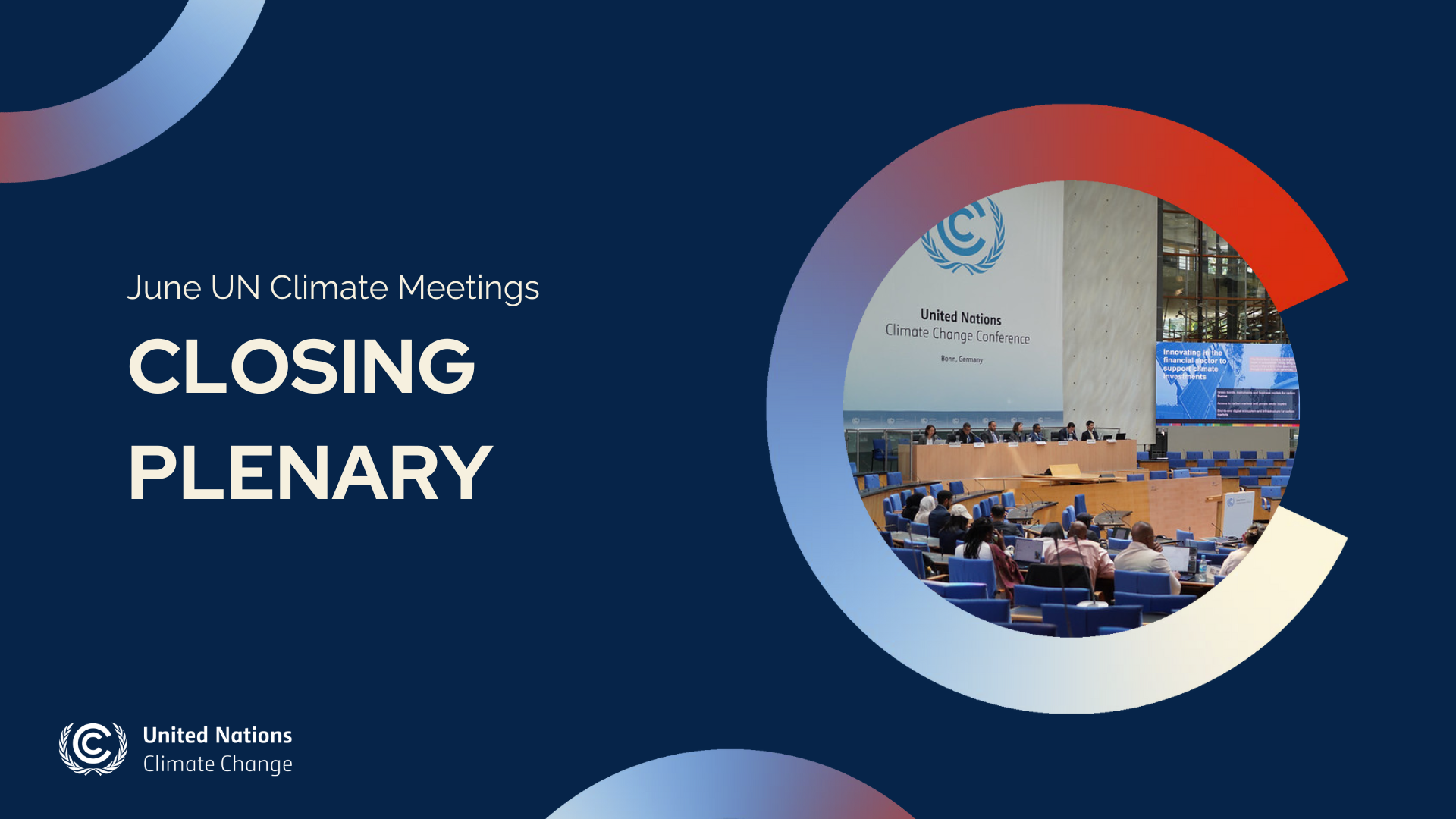
Watch UN Climate Change Executive Secretary Simon Stiell, the SB 60 co-chairs, and other delegates discuss the conference outcomes and next steps.
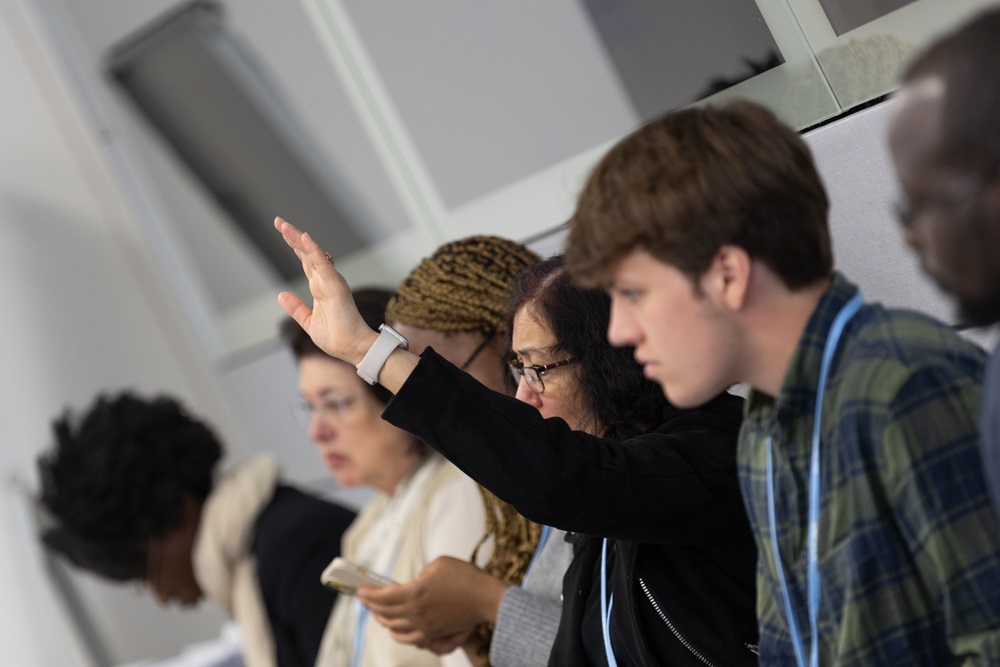
In adopting the Paris Agreement, governments recognised the important role of civil society in finding solutions to the impacts of climate change.
817 Non-Governmental Organizations (NGOs) are accredited as observers at the June UN Climate Meetings, representing a broad spectrum of interests and bringing a wide variety of voices and perspectives.
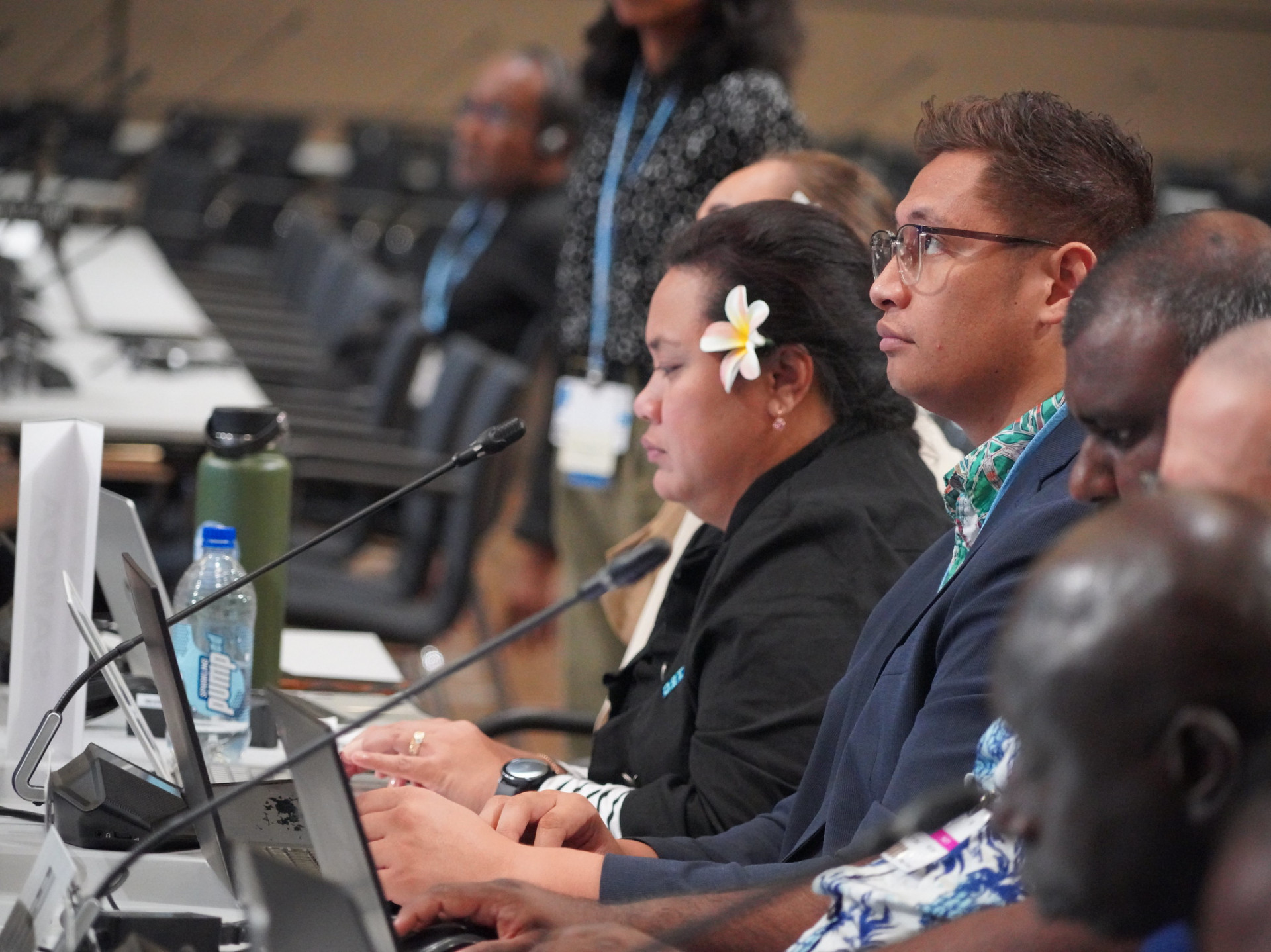
UN Climate Change meetings and conferences bring together people from all over the world to tackle the climate crisis. To ensure a respectful and productive experience for all, we encourage participants to know our Code of Conduct.
It's the responsibility of all participants to help ensure an inclusive and constructive environment, at all times, without exception.
Report concerns: If you witness or experience any issues, report them to UN security or here.
Follow guidelines: Respect event rules, protocols and UN procedures.
Respect privacy: Follow UN guidelines for photos and recordings.

The first Dialogue under the United Arab Emirates Just Transition Work Programme took place at the June Climate Meetings last week with speakers highlighting the need for whole-of-society approaches to a sustainable future, that are inclusive, equitable and just.
“It is one thing to say we must leave no-one behind. But to actually deliver on that, we need to start making concrete plans," said UN Climate Change Executive Secretary Simon Stiell. "We need to be designing policies based on dialogue and engagement with all parts of society. There is no one-size-fits-all, and each solution needs to adapt to each context, developed or developing, urban or rural.”
The Dialogue provided 170 Party representatives and non-party observers the opportunity to share their views and experiences on just transition pathways to achieving the goals of the Paris Agreement through countries’ Nationally Determined Contributions, National Adaptation Plans and long-term, low-emission development strategies.
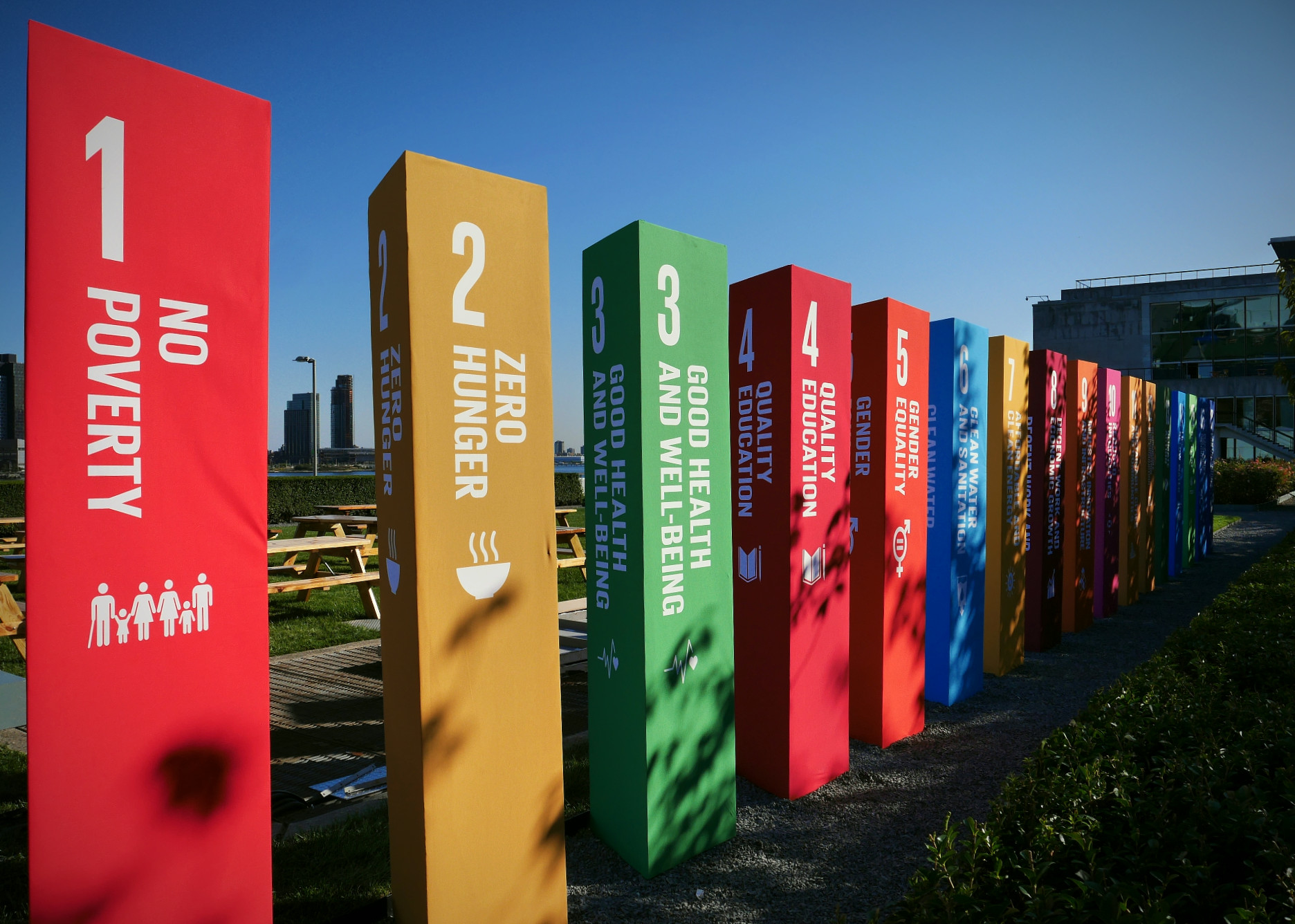
Climate change presents one of the biggest threats to sustainable development everywhere, and its widespread, unprecedented impacts disproportionately burden the most vulnerable. Urgent action to halt climate change and deal with its impacts is integral to successfully achieving all Sustainable Development Goals (SDGs).
Four thematic reports have been launched today at the June Climate Meetings, highlighting how action to tackle climate change and the SDGs can be accelerated by addressing both crises together. Spearheaded by the Expert Group on Climate and SDG Synergy, these reports lay the groundwork for the 2024 global synthesis report on climate and SDG synergy, to be released in July.
The Expert Group is co-convened by the UN Department of Economic and Social Affairs and UN Climate Change, which co-hosted the launch, joined by the secretariats of the UN Convention on Biological Diversity and the UN Convention to Combat Desertification. The reports emphasize the upcoming update of national climate action plans (NDCs) in 2025 as a prime opportunity for countries to align their climate actions with the SDGs.

The Ocean and Climate Change Dialogue gets underway at the June Climate Meetings today, with a focus on two key topics – marine biodiversity conservation and coastal resilience, and ocean energy technologies.
According to the IPCC Climate Change 2023 Synthesis report, climate change has caused substantial damage, and increasingly irreversible losses, in terrestrial, freshwater, and coastal and open ocean ecosystems with impacts on food security.
In the words of UN Climate Change Executive Secretary Simon Stiell:
"Humanity depends on the ocean. And this wave, like all waves, will keep on coming. We can only dive in – doing the necessary work ahead of us."
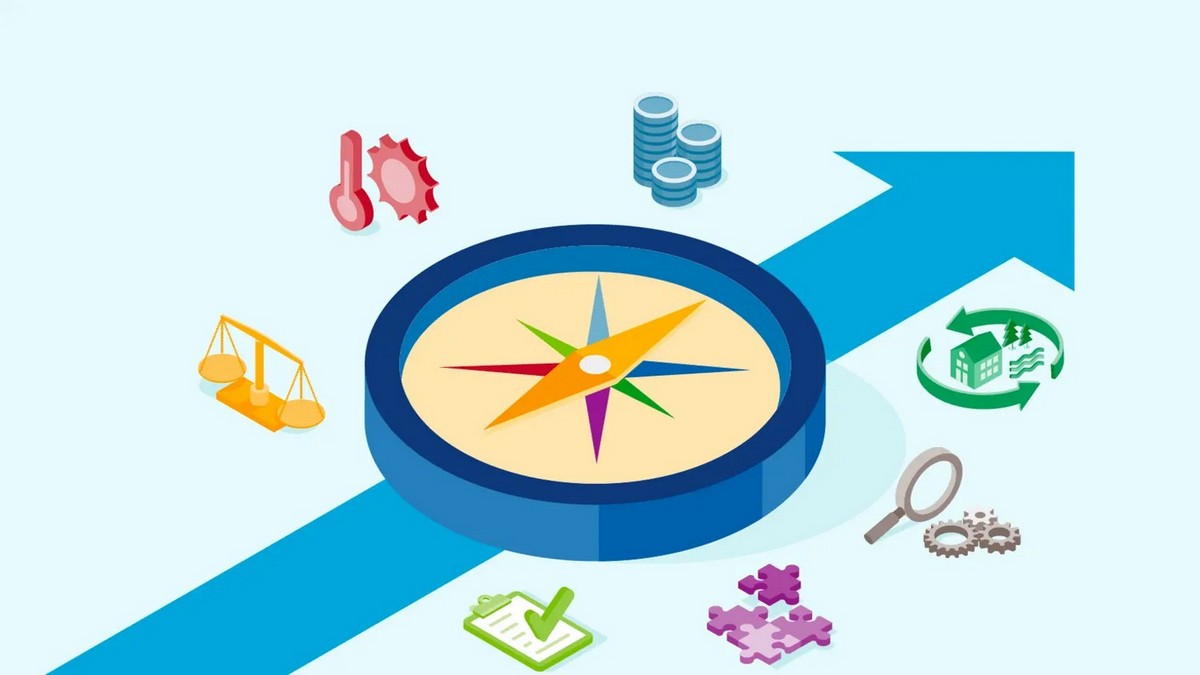
Many Parties need help putting their nationally determined contributions (NDCs) together, especially vulnerable nations, who face gale-force headwinds on multiple fronts. So how can implementable NDCs be developed?
Together with the UN system and other partners, we've been focused on ways we can provide practical support to Parties who need help. One such tool is the NDC 3.0 Navigator, developed by the NDC Partnership in collaboration with the secretariat, UNDP and WRI, launched today.
“The NDC 3.0 Navigator can help connect Parties to information, other tools, and contacts that could help them develop new nationally determined contributions with a focus on real implementation,” said UN Climate Change Executive Secretary Simon Stiell.
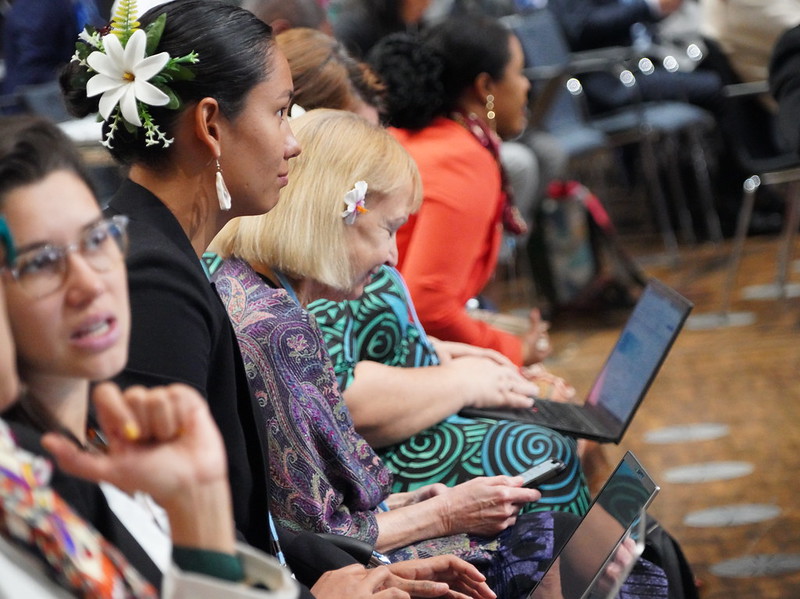
Just before the June Climate Meetings got underway last week, the Standing Committee on Finance held a meeting where it advanced preparations for the 2024 Forum on gender-responsive financing.
Taking place from 2-3 September in Arusha, Tanzania, the Forum will highlight the critical importance of gender-responsive finance in achieving low-emission climate-resilient development and poverty eradication that will be equitable and inclusive.
A summary report of the Forum will be submitted by the Standing Committee on Finance to COP29 in Baku, Azerbaijan. This report will provide insights and recommendations on gender-responsive finance, helping to guide future policy and investment decisions.
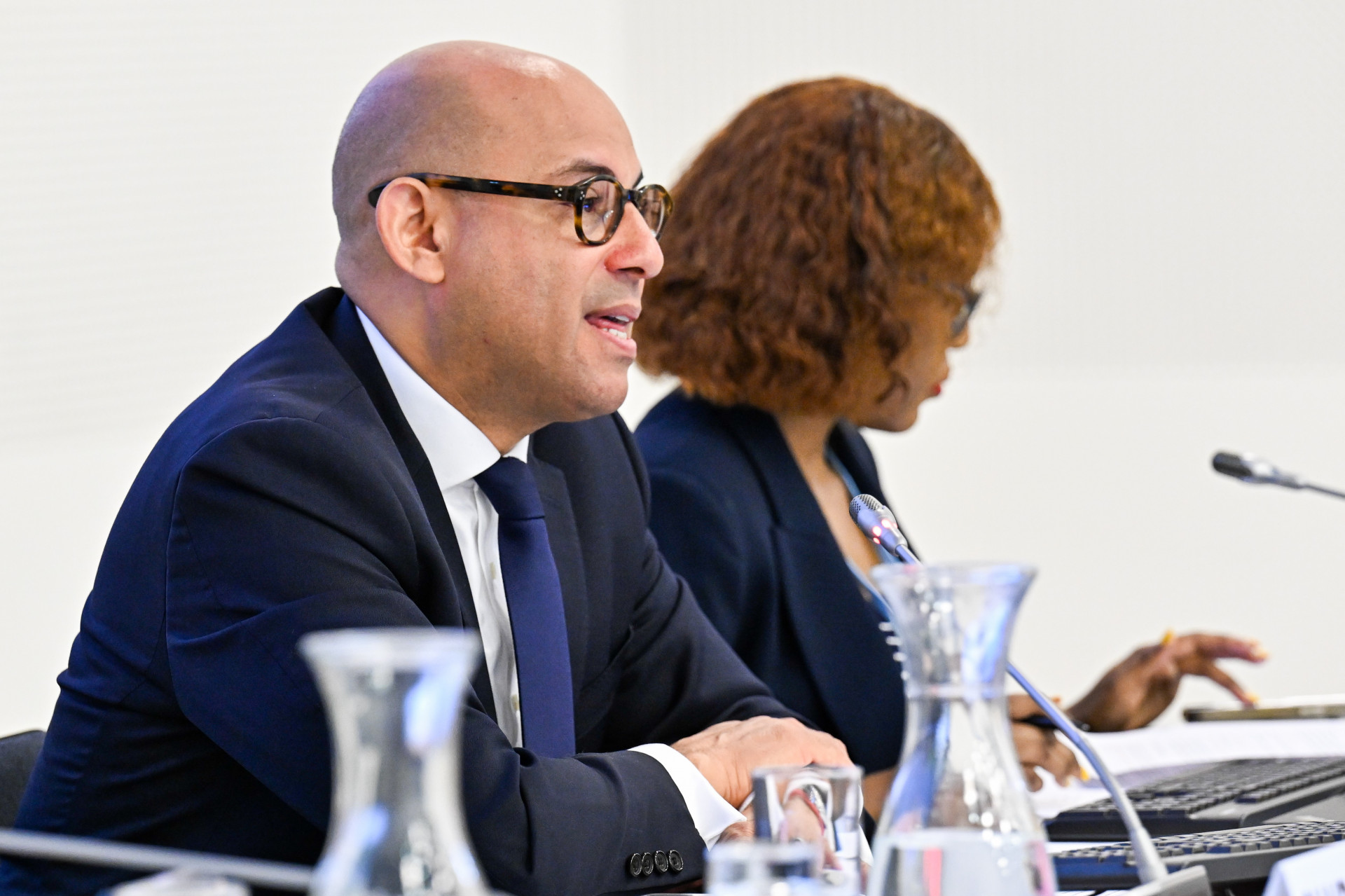
“To learn from the data and to design more effective policies. To direct resources where they’re needed most. And to share the successes we're proud of. Together we can build capacity, to see and seed more climate action and change lives for the better.”
Watch the webcast of the event
UN Climate Change Executive Secretary Simon Stiell is opening a transparency event today on the importance of climate reporting.
Countries need to prepare and submit their first Biennial Transparency Reports (BTRs) by year-end, providing data and information on progress made under the Paris Agreement.
Today’s event will highlight the support UN Climate Change offers countries in preparing and submitting their first BTRs, and allow countries to share experiences on data gathering, analysis and management.
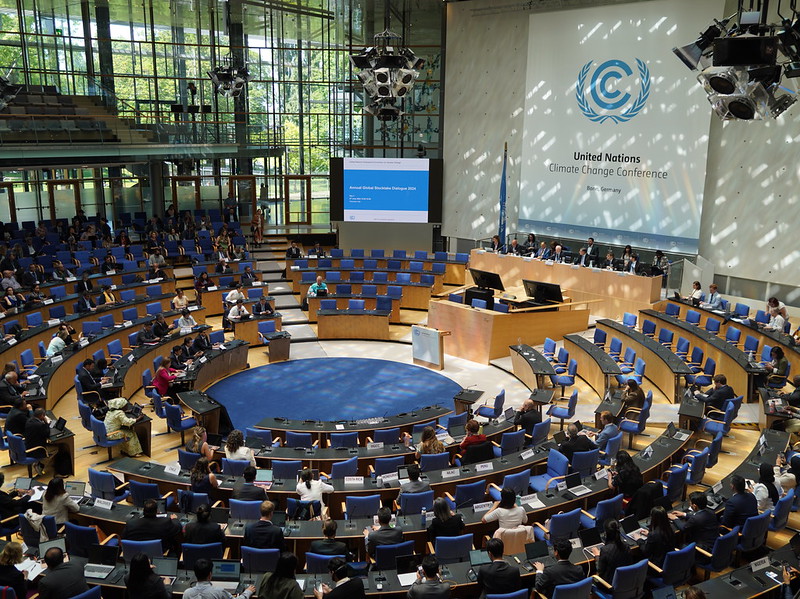
The venue will be closed on Sunday 9 June. No official meetings will take place, no services will be available, and no deliveries will be permitted.
We'll be back in action on Monday 10 June.

Did you know the ocean is the planet’s greatest carbon sink? It absorbs excess heat and energy released from rising greenhouse gas emissions trapped in the Earth’s atmosphere, mitigating the effects of climate change.
Nature-based solutions in oceans and coastal areas are a vital part of strategies to strengthen livelihoods, ensure food security and protect lives.
UN Climate Change addresses ocean-related climate action under a range of bodies and processes, and in collaboration with other UN agencies and non-party stakeholders.

By collecting climate data and information. This year, countries must submit their first-ever Biennial Transparency Reports (BTRs), assessing the actions they have taken to deliver on their Paris Agreement climate commitments.
Under the enhanced transparency framework, the first BTRs are due by December 2024 and will provide a snapshot of countries' progress in cutting emissions, putting in place climate policies, and providing resources where they're needed. They will highlight existing solutions and inform the next round of national climate plans (NDCs) with even more ambitious targets.
Strong climate reporting provides crucial data and information that help governments make informed decisions, attract climate finance and achieve broader development goals.

The second meeting of the group of development and implementing organizations that are supporting countries in formulating their next round of national climate action plans gets underway at the June Climate Meetings tomorrow. The group is expected to take stock of progress and plan for further support during the meeting.
The meeting will be opened by UN Climate Change Executive Secretary Simon Stiell, who will encourage the group to marshal as much support for the Parties as possible.
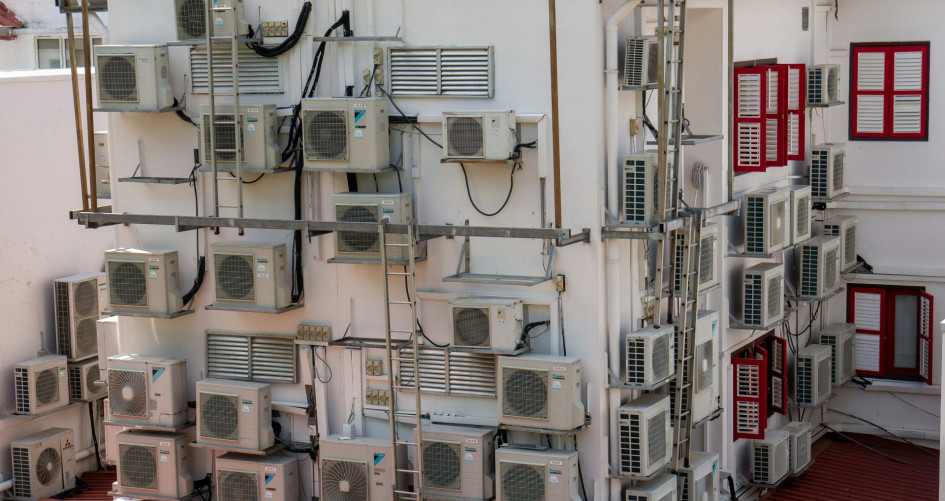
Reducing the greenhouse gas emissions of cities and urban buildings was the focus of the third Global Dialogue and Investment-focused Event held under the Mitigation Work Programme 27 to 29 May 2024 in Bonn.
The Dialogues were launched at the COP27 UN Climate Change Conference in Sharm el-Sheikh, with the aim of exploring solutions in specific key sectors of the economy to limit global heating within the temperature thresholds of the Paris Agreement.
According to the UN’s Intergovernmental Panel on Climate Change (IPCC), buildings account for more than 20% of global greenhouse gas emissions when all emissions generated by their construction and use are considered. This makes them a key part of the solution when it comes to fighting climate change.
The Action for Climate Empowerment (ACE) Hub is hosting an event to bring young people together for skills-building and knowledge-sharing.
The focus this year is on local action. 50 young people – 25 from around the world and 25 from the German state of North Rhine-Westphalia – have come together to develop the skills they need to lead climate initiatives in their communities.
It's an opportunity for young people to connect, exchange views and share ideas for change.

At the COP27 in Sharm el-Sheikh, Egypt, countries reached a significant breakthrough to establish a Fund for responding to loss and damage in countries particularly vulnerable to climate change.
In 2023, UN Climate Change worked with the COP Presidencies and key partners to operationalize the Fund, and COP28 opened with a historic agreement on operationalization of the Fund.
The third Glasgow Dialogue on loss and damage at the June Climate Meetings is discussing the Fund’s coordination arrangements, assessing progress made and developing further recommendations.
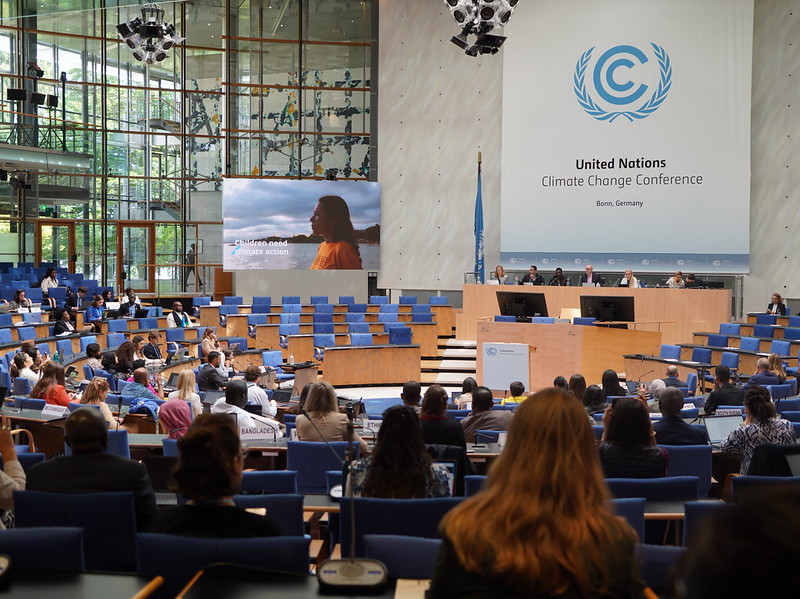
We know that limiting global warming to 1.5°C requires deep, rapid and sustained reductions in global greenhouse gas emissions. However, global energy-related CO2 emissions still grew by 1.1 per cent in 2023, despite record-high deployment of clean energy technologies, according to estimates from the International Energy Agency (IEA).
An event organized by UN Climate Change and the IEA taking place today (starting at 14:45) will explore up-to-date information on indicators and metrics in relation to tracking progress on the COP28 energy outcomes from IEA.
“This information could serve as a tool for policymakers and stakeholders to assess progress and strengthen energy policies in line with a pathway to achieve 1.5°C goal,” said James Grabert, Director, Mitigation Division, UN Climate Change.
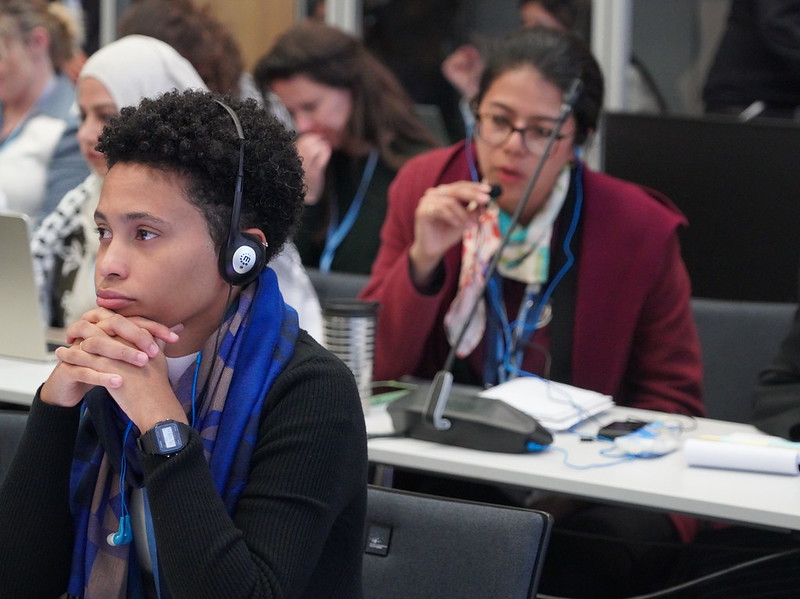
One of the outcomes of last year’s historic global stocktake decision was to organize an annual dialogue, with the first-ever dialogue taking place here at the June Climate Meetings. Day 1 of the dialogue gets underway this afternoon, and picks back up again tomorrow.
The new annual dialogue is a forum to share knowledge and good practices on how the outcomes of the global stocktake are helping Parties prepare their next round of climate action plans, known as nationally determined contributions (NDCs).
During the two-day dialogue, Parties and non-Party stakeholders will discuss their experiences and practical solutions to address implementation gaps in current NDCs by accelerating action, and closing ambition gaps in the next NDCs.
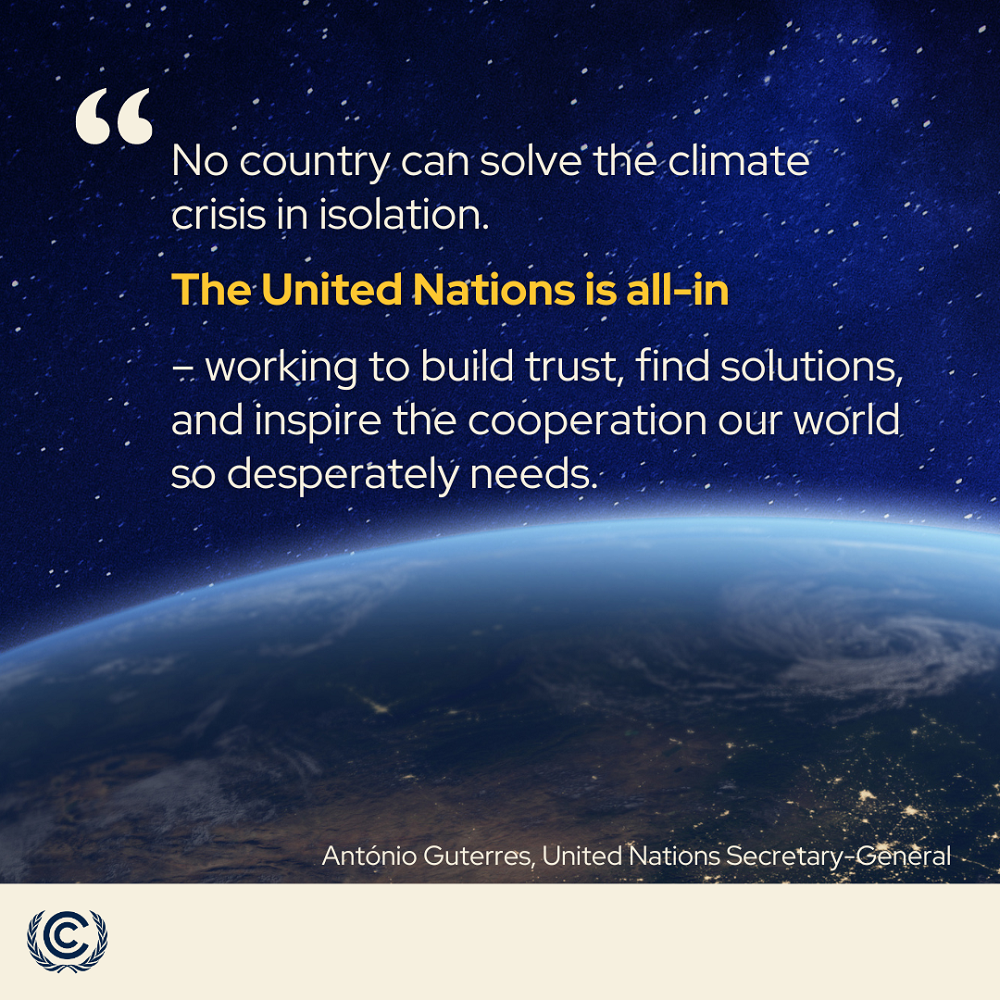
This World Environment Day, United Nations Secretary-General António Guterres reminds the world that we are facing climate crunch time and that the need for action is unprecedented. But so is the opportunity: not just to deliver on climate, but on economic prosperity and sustainable development.
The World Meteorological Organisation reports that there is an 80% chance the global annual average temperature will exceed the 1.5 degree limit in at least one of the next five years.
“We need to act on every front. No country can solve the climate crisis in isolation. The United Nations is all-in – working to build trust, find solutions, and inspire the cooperation our world so desperately needs.”
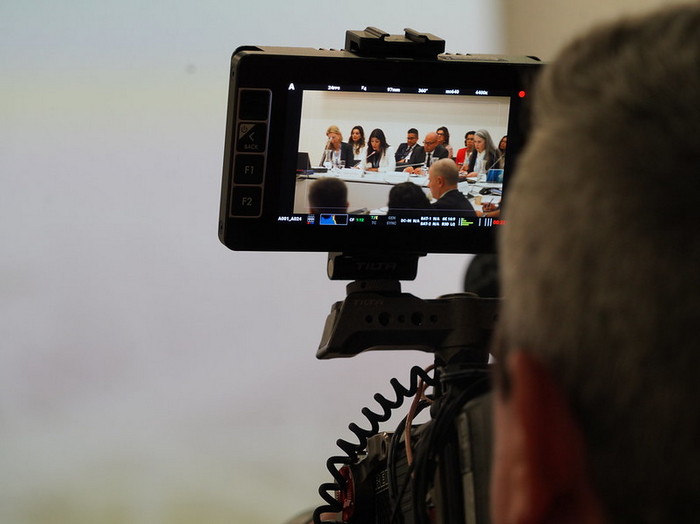
Our small team of photographers is busy taking photos of some of the most interesting events and activities at the June Climate Meetings. You can find a curated selection of these photos on our Flicker album. All photos are free to download, share and use (please credit UN Climate Change).
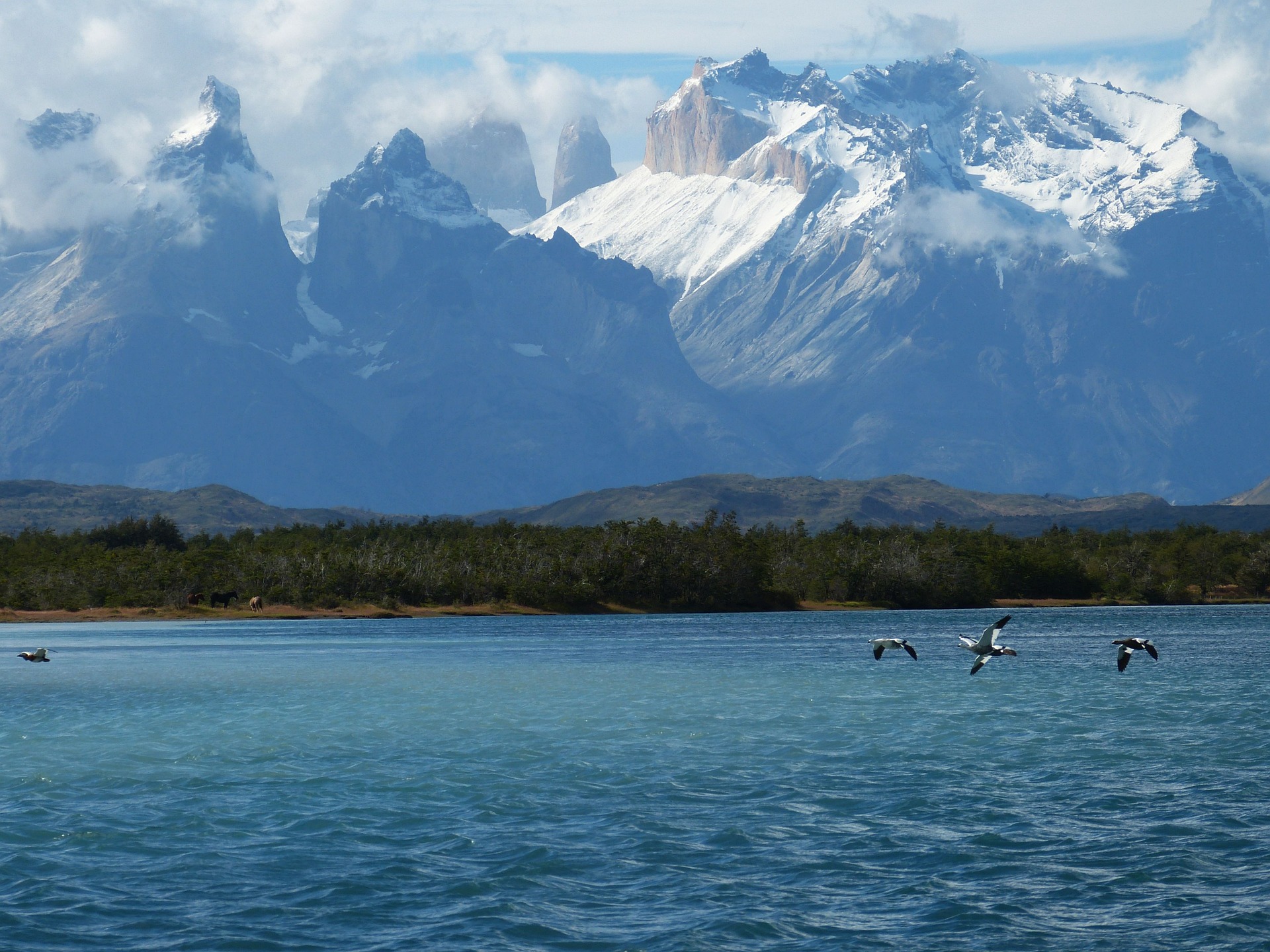
Mountains, with their rich biological and cultural diversity, are critical components of our planet's ecological balance and play a crucial role for the livelihoods of millions of people.
Recognizing the importance of mountains in the face of accelerating climate impacts, the first expert dialogue on mountains and climate change is taking place today at the June UN Climate Meetings.
Scientists, policymakers and frontline communities are coming together to share knowledge, experience and insights on strengthening the resilience of mountain ecosystems.
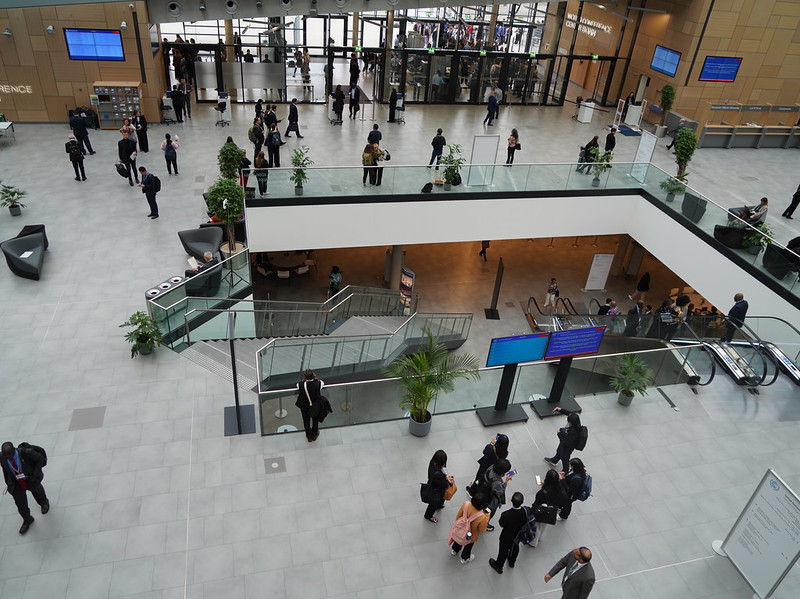
The June UN Climate Meetings are critical preparatory meetings to help lay the groundwork ahead of the COP29 UN Climate Change Conference in Baku, Azerbaijan, in November. Formally called the 60th meetings of the Subsidiary Bodies, they focus on technical and scientific matters, as well as implementation of the climate treaties.
During the June meetings, delegates and experts will work to make progress on climate finance, strengthened resilience against worsening climate impacts, transparent reporting to enable stronger climate action and boosting ambition for national climate plans.
The recommendations made during the June Meetings will significantly inform decisions made at COP29.

Building on the momentum of COP28's Global Stocktake, UN Climate Change is urging all countries to prioritize National Adaptation Plans (NAPs). The goal: to have robust NAPs developed by the end of 2025 and significant progress implementing them by 2030.
These plans are crucial for building resilience against climate impacts and safeguarding communities, infrastructure and ecosystems from climate threats. They identify a country's specific vulnerabilities and outline clear strategies to address them.
UN Climate Change is working closely with countries, implementing partners and financial institutions to help speed up the development of NAPs and ensure plans are designed to attract funding and drive meaningful climate adaptation efforts.
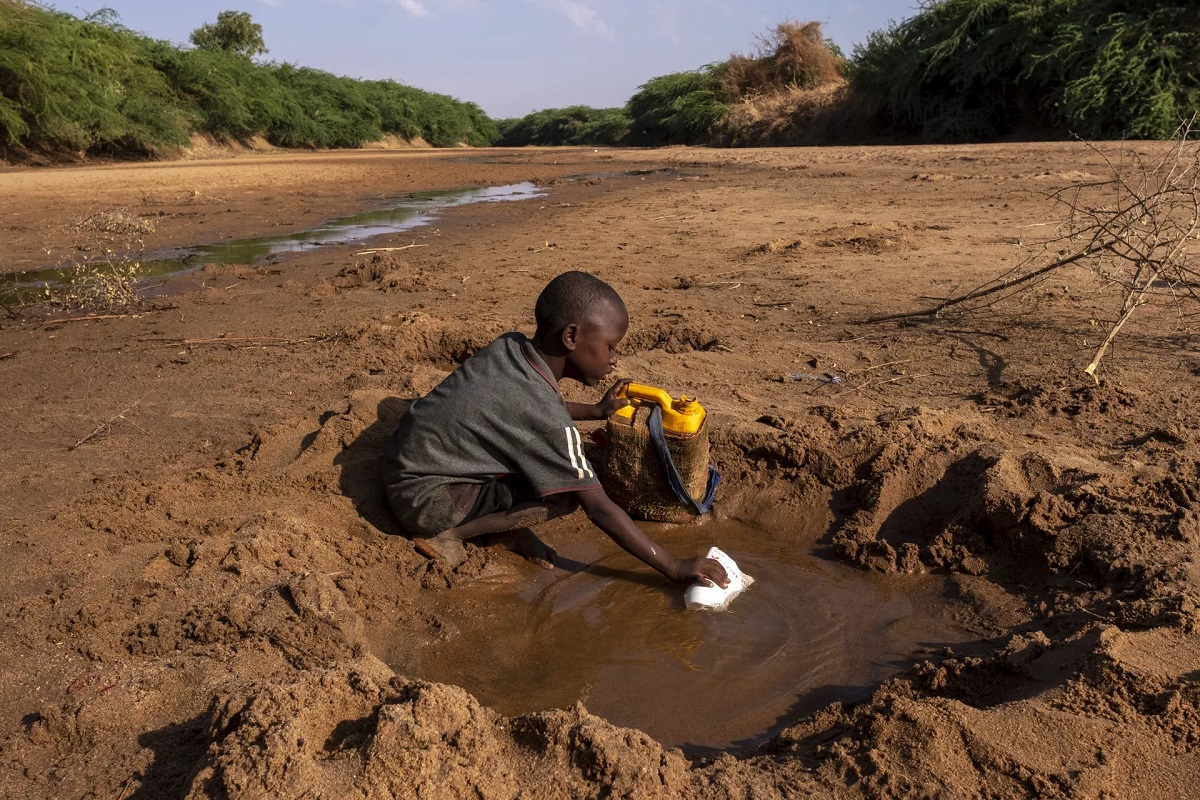
Climate change gravely threatens the lives and well-being of children, as their health and development are strongly affected by their environment and worsening climate impacts.
An Expert Dialogue is taking place today to dive deep into the specific challenges children face, including lack of access to essential services and disruptions to education.
Discussions will focus on identifying gaps and possible enablers – such as education and investment in climate-resilient communities, and the policy solutions needed to address them.
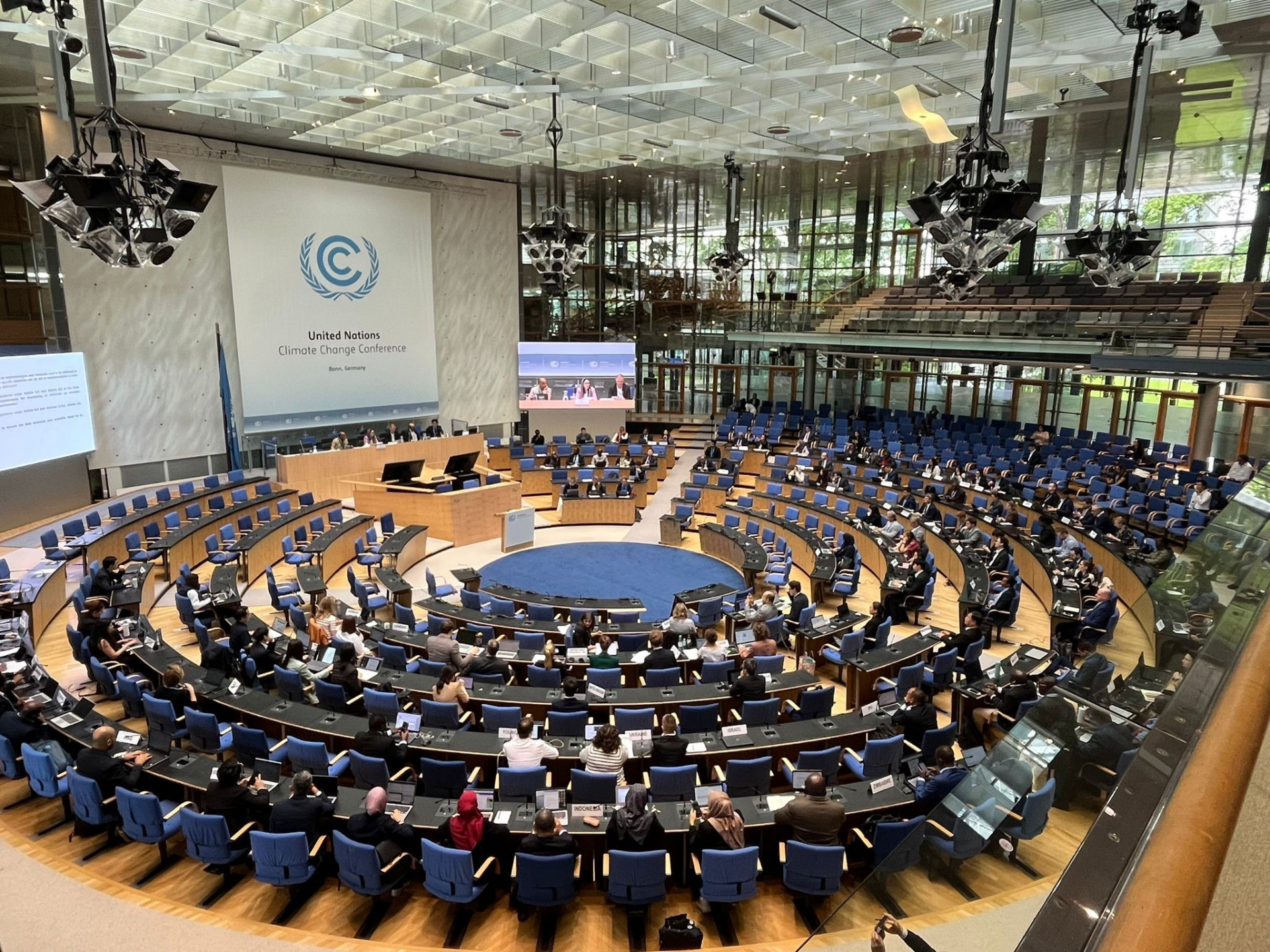
Moving towards better carbon markets under Article 6 this year can unlock funding for national climate plans and adaptation.
One important element is operationalizing the new global carbon market under Article 6.4 of the Paris Agreement.
Ahead of COP29, the most critical work is to finalize the recommendations on methodologies and removals. At the June UN Climate Meetings in Bonn, the Supervisory Body convened Parties and stakeholders to discuss concerns that arose in Dubai and build consensus for a way forward at COP29.
“Our aim in bringing together Parties and stakeholders today was to have a frank and open discussion which enables us to find solutions that are inclusive ahead of COP29,” said Maria AlJishi, Chair of the Article 6.4 Supervisory Body.
“We very much welcome the patience and perseverance of the many stakeholders here today. We have listened and heard a range of views, and strengthened our understanding for the task ahead,” added Vice Chair Martin Hession.

A new phase of work on one of the most important items currently on the global climate change agenda – setting a new goal on climate finance by the end of 2024 – gets underway at the Bonn Climate Meetings today.
The 10th technical expert dialogue (TED10), followed by the second meeting under the ad hoc work programme on the new collective quantified goal on climate finance (NCQG), takes place starting at 15:00.
These meetings mark a significant shift in the mode of work – from the technical to the political – to enable the development of a draft negotiating text for consideration at the COP29 UN Climate Change Conference in November.
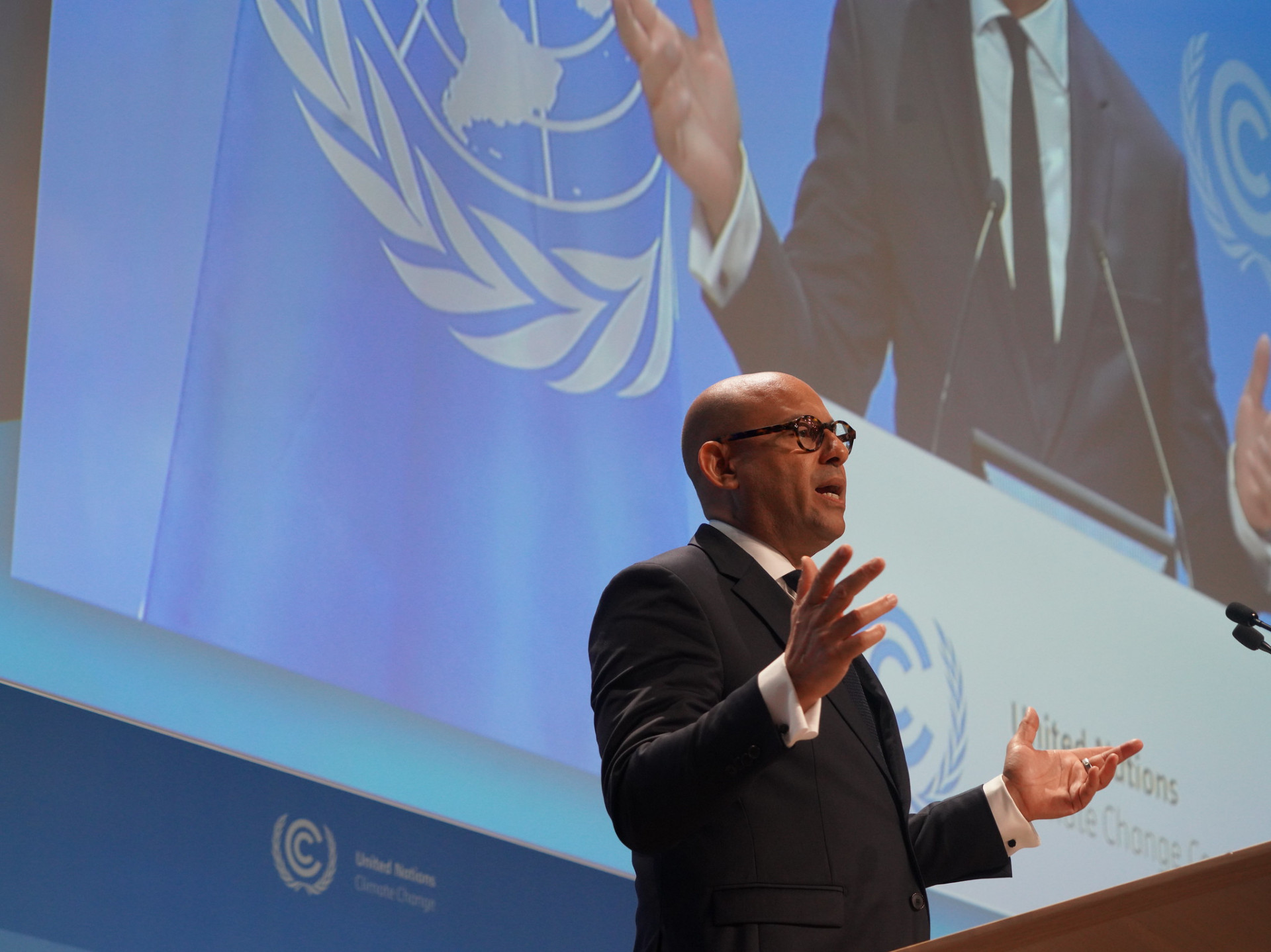
Read the full transcript of UN Climate Change Executive Secretary Simon Stiell's opening speech at the June UN Climate Meetings.
The speech is also available in French (Français), Russian (Русский) and Spanish (Español).
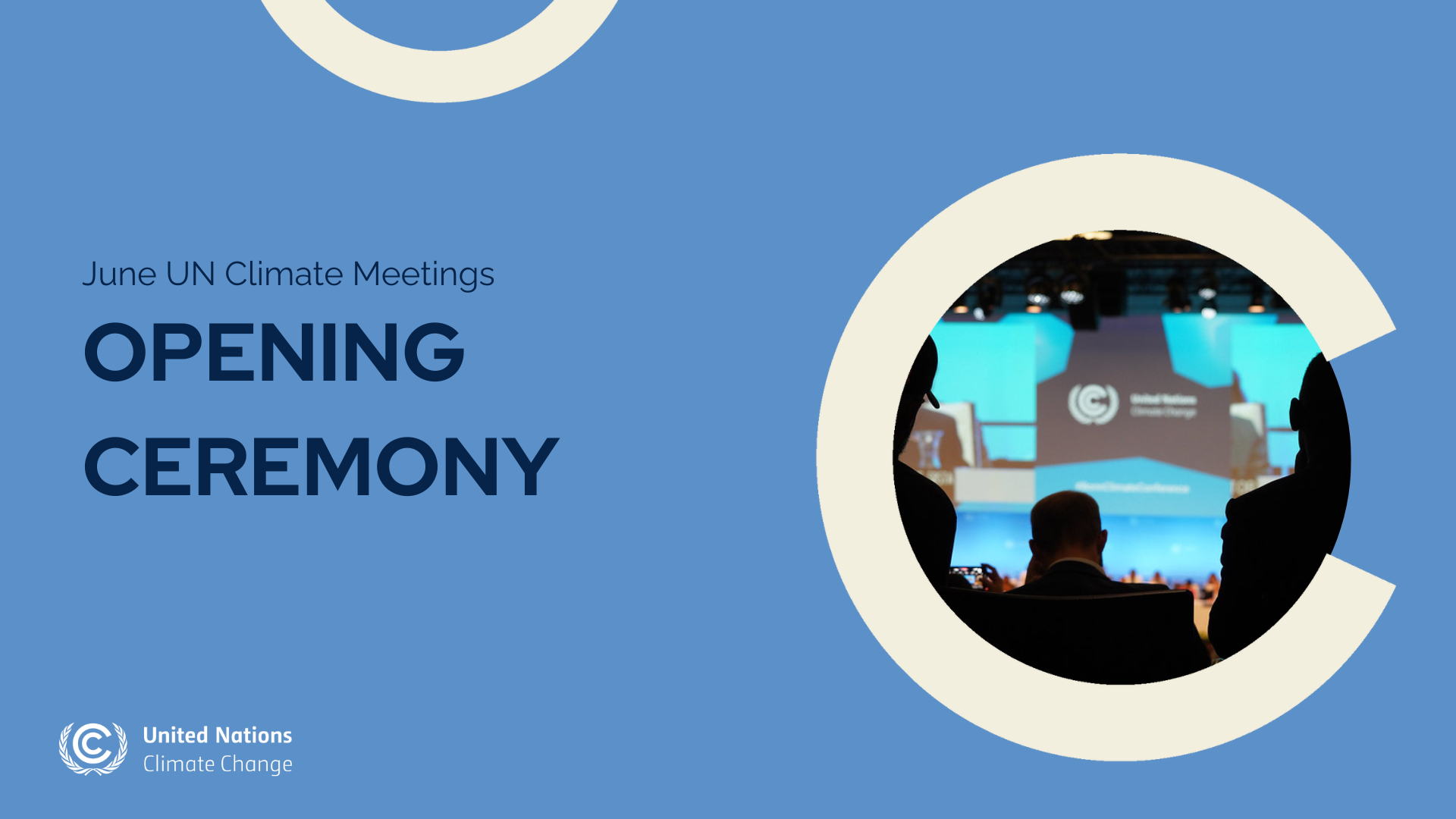
Подключайтесь к открытию Июньских встреч ООН по климату!

Подключайтесь к трансляции, чтобы увидеть вступительную речь Исполнительного секретаря Рамочной конвенции ООН об изменении климата (РКИК ООН) Саймона Стила, которая даст старт Июньским встречам ООН по климату.
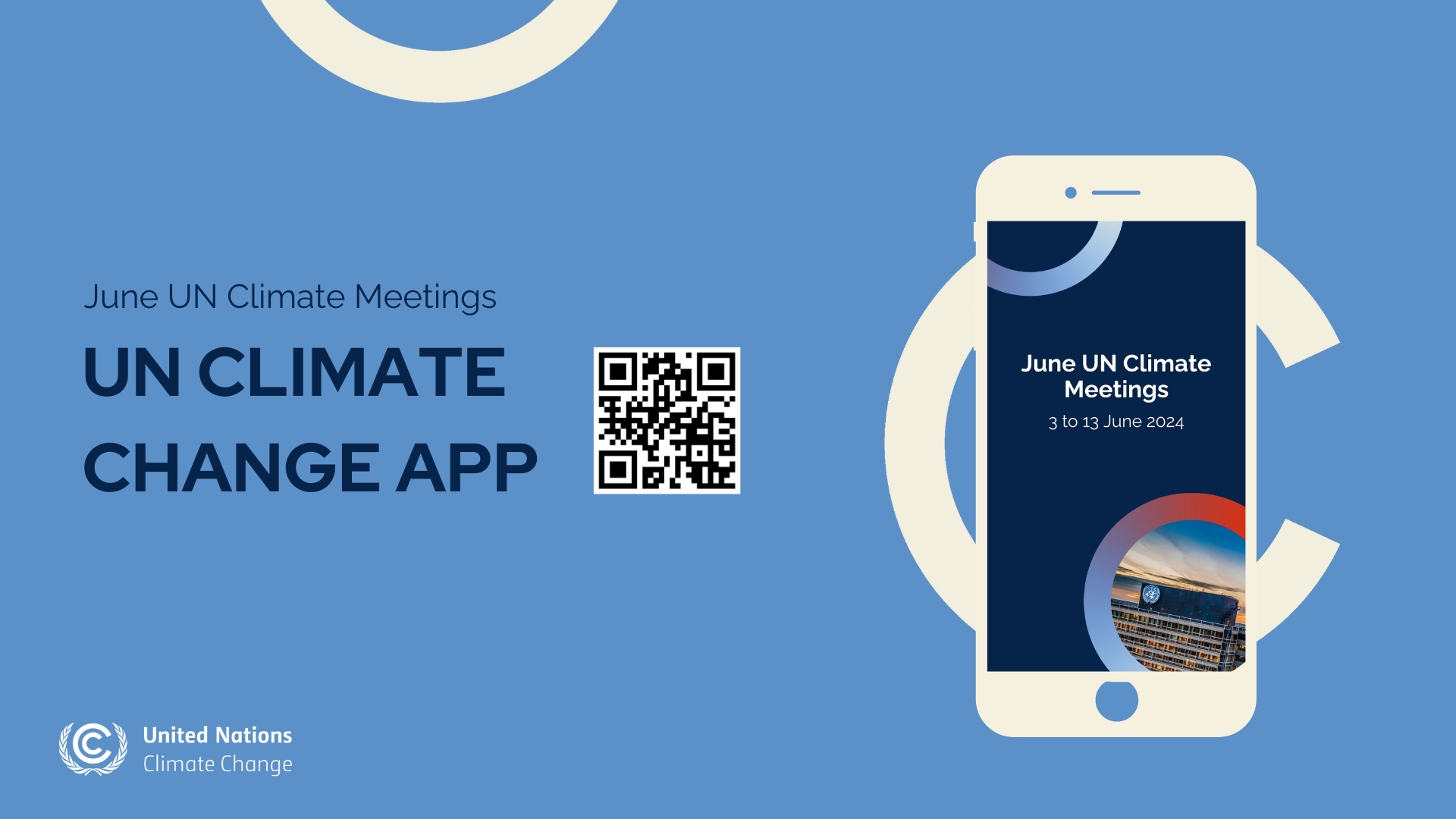
Загрузите приложение, чтобы быть в курсе последних новостей, иметь доступ к прямым трансляциям, расписанию встреч и документам в режиме реального времени.
Приложение «UN Climate Change» доступно в магазинах приложений Google (Android) и Apple (iOS) (для смартфонов и планшетов) и является отличным способом оставаться в курсе международных мер по борьбе с изменением климата в любое время.

Встречи, которые пройдут с 3 по 13 июня во Всемирном конференц-центре в Бонне (Германия) будут основываться на многочисленных мандатах, согласованных на КС-28 в Дубае.
Мероприятие направлено на достижение прогресса по ключевым вопросам климатической повестки дня и подготовку текстов решений для принятия на Конференции ООН по климату КС-29 в Баку (Азербайджан) в ноябре этого года.
Делегаты-представители стран и гражданского общества составят значительную часть из примерно 6 000 участников, которые, как ожидается, примут участие во встречах.
Представители национальных делегаций и гражданского общества составят значительную часть из примерно 6000 участников, которые, как ожидается, примут участие во Встречах.
Они сосредоточат свое внимание на таких важнейших вопросах как климатическое финансирование, подготовка следующего раунда национальных климатических стратегий (или ОНУВ – Определяемых на национальном уровне вкладов), своевременная подготовка странами первых Двухгодичных докладов о прозрачности, работа над Национальными планами по адаптации, ускорение принятия мер по борьбе с изменением климата путем осуществления справедливой трансформации. Также будет затронуто много других важных вопросов климатической повестки дня. Узнайте больше
На странице «Информация для участников» вы сможете спланировать свое участие в конференции и найти ответы на интересующие вас вопросы.
Здесь вы найдете информацию о размещении, регистрации, визах, бронировании конференц-залов и многом другом.